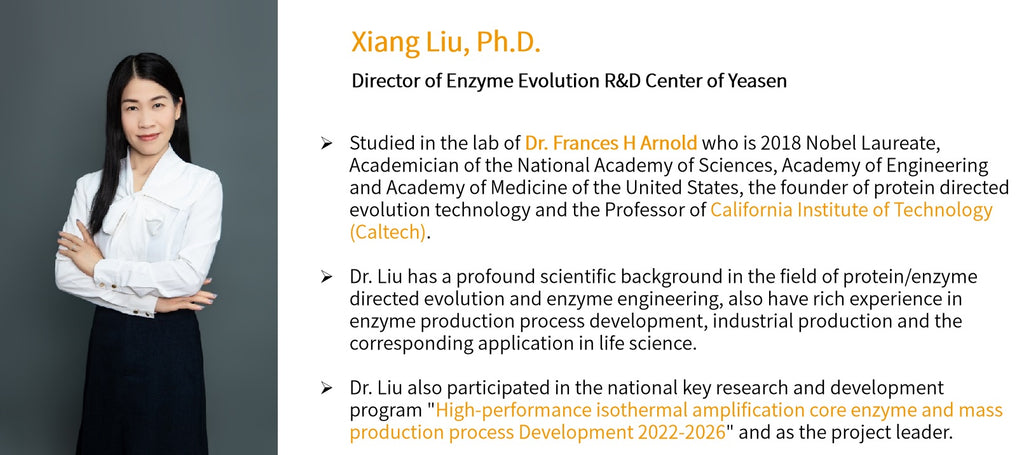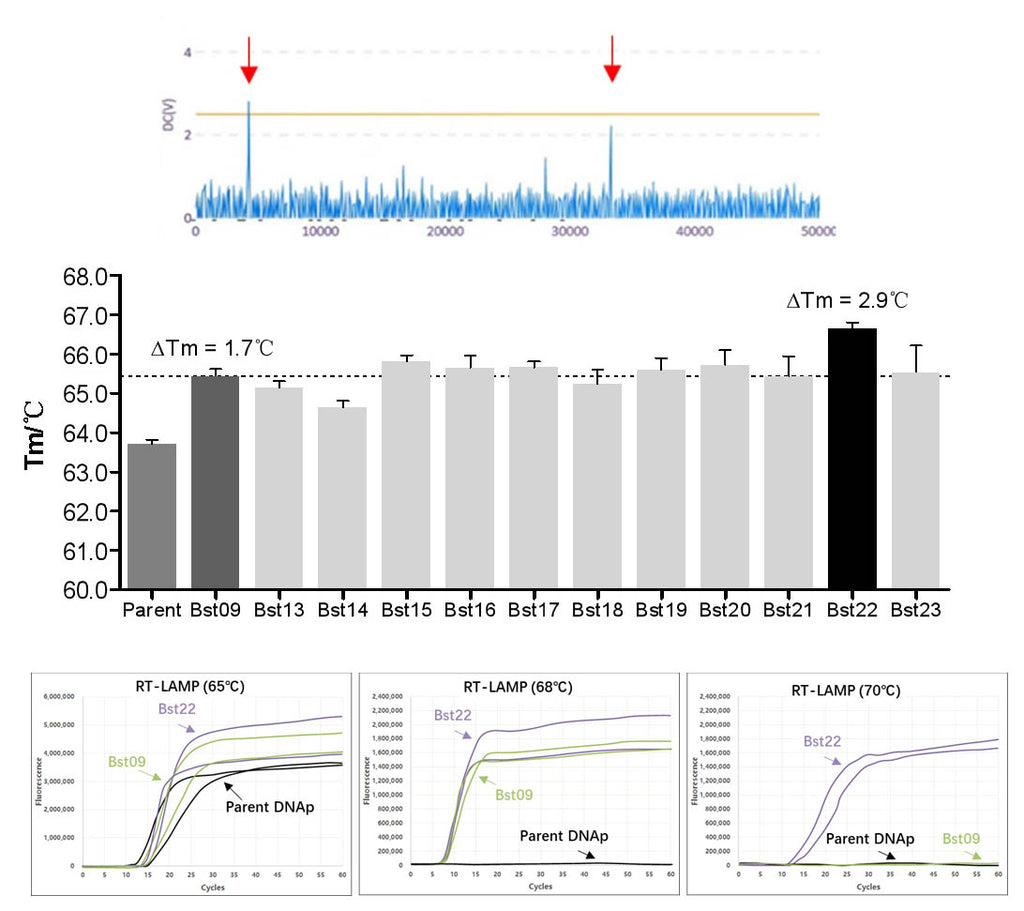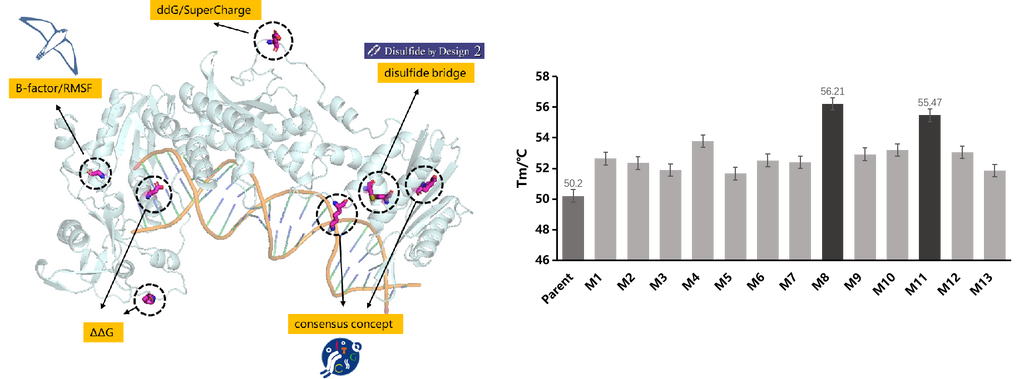Yeasen's ZymeEditor™ platform designed to unleash the boundless capabilities of enzymes through directed evolution.
Enzymes constitute a crucial category of biocatalysts, finding broad utility in scientific research, diagnostics, pharmaceuticals, food production, the chemical industry, and numerous other domains. Nonetheless, the practical application of most natural enzymes is significantly hampered by their inherent performance limitations. To address the demands of enzyme utilization in real-world applications, various enzyme modification technologies have arisen to meet the evolving needs of the times. Enzyme modification technologies encompass the genetic alteration of enzymes to finely tune and optimize biochemical reactions, rendering them better suited for specific application contexts. These enzyme modification methods encompass techniques like rational design, directed evolution, and machine learning. Among these, directed evolution stands out as a pivotal approach in enzyme modification. Notably, Professor Frances Arnold of the California Institute of Technology (Caltech) was awarded the Nobel Prize in Chemistry in 2018 for her groundbreaking work in directed evolution technology.

Figure 1: Winners of the Nobel Prize in Chemistry 2018
Comprehensive Solutions for Enzyme Modification and Development Platform
Yeasen's biological evolution team, building upon the pioneering directed evolution technology developed by Professor Frances Arnold, has seamlessly integrated rational design, directed evolution, and machine learning to create an efficient, systematic, and innovative enzyme modification platform known as ZymeEditor. To date, this platform has successfully established a strong technological foundation in enzyme development. Furthermore, with nearly a decade of dedicated research and production experience in tool enzymes.


Figure 2: Workflow of ZymeEditor Platform
Enzyme engineering
ZymeEditor platform employs a dual approach, combining rational design and directed evolution strategies to elevate the success rate of enzyme engineering.The rational design methodology, rooted in the enzyme's structure-function relationship and leveraging a range of computational and virtual analyses, swiftly crafts "precise yet compact" mutant libraries, thereby enhancing enzyme performance. On the other hand, directed evolution technology relies on fluorescence-activated droplet sorting and high-throughput automated Microtiter plate screening techniques, enabling rapid screening and functional validation of extensive mutation libraries (ranging from 10^8 to 10^12). This approach amplifies screening success rates, shortens evolutionary cycles, and significantly reduces screening costs.Furthermore, the platform harnesses machine learning using the extensive experimental data generated through rational design and directed evolution. It is in the process of developing algorithms and models related to enzyme modification using AI technology to further enhance the precision of enzyme modification.

Figure 3. FADS Platform

Figure 4: Solution for Fermentation and Purification Processes development
Optimizing Fermentation and Purification Processes
The advancement of fermentation and purification processes plays a pivotal role in producing top-tier mutants crafted by the ZymeEditor platform. In pursuit of this goal, Yeasen has autonomously established a comprehensive suite of technologies, including high cell density fermentation and the UCF·ME® ultra-clean purification platform. This platform encompasses multi-host high-efficiency expression technology, high cell density fermentation techniques, integrated high-throughput protein purification screening technology, UCF·ME® ultra-clean molecular enzyme production technology. These technologies furnish a robust technical foundation for achieving scalability, stability, and the reliable production and preparation of enzymes.
 Figure 5: High-throughput protein purification process screening
Figure 5: High-throughput protein purification process screening
To address the growing need for large-scale production of top-quality enzymes, Yeasen has erected two GMP-compliant production facilities spanning nearly 10,000 square meters in Wuhan. Additionally, we've installed two state-of-the-art, fully automated 1500-liter fermentation systems and assembled a dedicated team of experts specializing in enzyme production and quality assurance. These resources collectively ensure the successful scale-up production of high-caliber enzymes.

Figure 6: UCF·ME® Ultra-Clean Enzyme factory
Yeasen's ZymeEditor Enzyme Customization Service
We excel in customizing solutions to tackle enzyme-related challenges, addressing issues like low activity, inadequate stability, limited affinity, weak inhibition resistance, poor substrate specificity, and more. ZymeEditor serves as a pioneering and foundational technology platform for enzyme modification. It lays the technological groundwork for the development of top-notch enzymes through interactive screening, seamlessly integrating ultra-high throughput directed evolution and rational design with AI technology.

Leveraging Yeasen's extensive experience and expertise in the field of molecular enzyme modification, the ZymeEditor platform excels at making precise adjustments to various enzymes, meeting a wide range of requirements including activity, stability, selectivity, and more. This comprehensive service suite offered by ZymeEditor significantly contributes to the advancement of various industries, spanning synthetic biology, pharmaceuticals, diagnostics, food production, chemicals, and beyond.
Case Study:

Figure 7: Bst DNA polymerase screening through FADS.

Figure 8: MMLV reverse transcriptase screening through microtiter-plate screening.

Figure 9: MMLV reverse transcriptase engineering through rational design.

Figure 10: Rereductase engineering
